Social Etiquette Training Course in Norway
Our corporate training course is also available in Oslo, Bergen, Stavanger, Trondheim, Drammen, Fredrikstad, Kristiansand, Sandnes, Tromsø, Sarpsborg, Skien, Ålesund, Sandefjord, Haugesund, Tønsberg, Moss, Porsgrunn, Bodø, Arendal, Hamar, Ytrebygda, Larvik, Halden, Lillehammer, Mo i Rana, Molde, Horten, Gjøvik, Askøy, Kristiansund, Flåm, Geiranger, Svolvær, and Kirkenes.
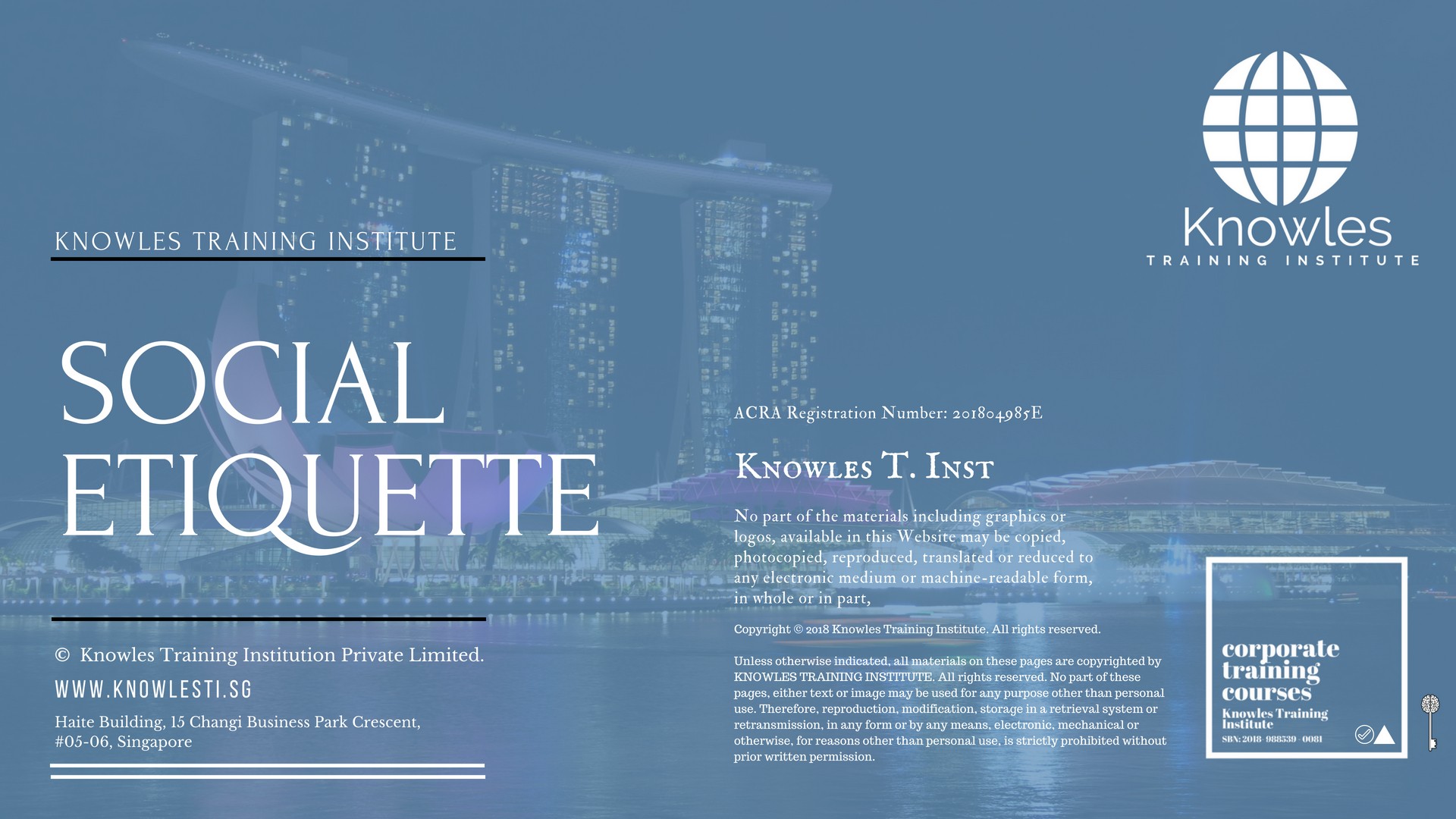
About This Social Etiquette Training Course in Norway
Social Etiquette Course in Norway
Etiquette can be defined as a code of polite conduct. When you practice social etiquette, you are less likely to annoy or offend people – instead you can charm them. The truth is that there are accepted behaviours in different social situations. If you put them in practice you can create a big difference in your personal and professional life. The basic rules of social etiquette include having good manners.
No matter who you are in the community, you have to communicate throughout. Therefore, you have to be a good communicator. This is because you will be sharing a lot of information, raising your children, and even winning others to your side. You need to know how to hold decent conversations and dialogue.
It is a good idea to approach any social situation with confidence and arrive in a polished version of you. You do not want to be tongue-tied in the dinner party, thinking about the spoon to use first. Probably you think you need to overhaul your personal image again or your body language keeps letting you down.
Social etiquette is more than saying “thank you” and “please” and holding your spoon correctly. It is an important part of treating others with empathy, integrity, and respect. You only have one chance to make the first impression. Thus, you need the knowledge and skills to sail you through any given social situation.
Who Should Attend This Social Etiquette Training Course in Norway Workshop
This Social Etiquette Training Course in Norway workshop is ideal for anyone who would like to gain a strong grasp and improve their Social Etiquette.
All Staff Within An Organisation
Managers
Team Leaders
Executives
Assistants
Officers
Secretaries
Group Size For This Social Etiquette Training Program in Norway
The ideal group size for this Social Etiquette course in Norway is:
Minimum: 5 Participants
Maximum: 15 Participants
Course Duration For This Social Etiquette Skills Course in Norway
The duration of this Social Etiquette Training Course in Norway workshop is 2 full days. Knowles Training Institute Norway will also be able to contextualised this workshop according to different durations; 3 full days, 1 day, half day, 90 minutes and 60 minutes.
2 Full Days
9 a.m to 5 p.m
Social Etiquette Training Course in Norway Benefits
Below is the list of course benefits of our Social Etiquette Training Course in Norway
- Enhance your relationships
- Control your emotions
- Improve your personal image
- Get the support you need
- Develop skills for success
- Become a better leader
- Improve your communication skills
Social Etiquette Training Course in Norway Objectives
Below is the list of course objectives of our Social Etiquette Training Course in Norway
- Understand why social etiquette matters and how it can be improved in the workplace
- Know different components of social-etiquette that include behaviour, communication, and appearance
- Understand how to read the body language of others
- Learn how to make good first impression and how to dress properly
- Understanding the challenges of introducing people in social situations and remembering their names
- Improve your art of conversation both on phone and in-person
- Appreciate how your personal style influences your communication style
- Explore social etiquette of various countries and cultures
- Understand how to deal with ethical issues, difficult people, and personal issues
- Know how to behave in a wide range of social situations
- Understand the do’s and don’ts of online etiquette
- How to meet people from different cultures and countries
- Describe inappropriate and appropriate behaviour in different workplace setting
Course Content For This Social Etiquette Training Course in Norway
Below is the list of course content of our Social Etiquette training course in Norway
- How manners matter in social gatherings and situations
- How to make a great impression at the first time
- Having a personal touch through reflection, handshake, and polite conversation
- Understanding how manners impact the online world and email etiquette
- Global etiquette and understanding different cultures
- Dining etiquette
- How to deal with various challenges professionally including difficult people
- Creating an action plan based on reflections
- Social entertainment in the right way
- How to deal with confidential issues
- How to accommodate colleagues and friends with a disability
Social Etiquette Training Course in Norway Value Added Materials
Each participant will receive the following materials for the Social Etiquette course in Norway
Social Etiquette Training Course in Norway Learner’s Guide

Social Etiquette Training Course in Norway Handouts
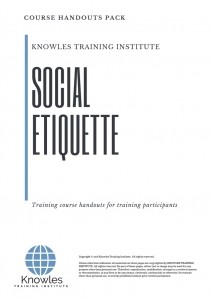
Social Etiquette Course in Norway PPT Slides Used During Course
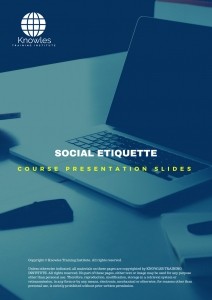
Social Etiquette Training Course in Norway Certification
Each course participant will receive a certification of training completion

Course Fees For Social Etiquette Course in Norway
There are 4 pricing options available for this Social Etiquette training course in Norway. Course participants not in Norway may choose to sign up for our online Social Etiquette training course in Norway.
- USD 679.97 For a 60-minute Lunch Talk Session.
- USD 289.97 For a Half Day Course Per Participant.
- USD 439.97 For a 1 Day Course Per Participant.
- USD 589.97 For a 2 Day Course Per Participant.
- Discounts available for more than 2 participants.
Course Discounts, Fundings & Subsidies
We have the following discounts, fundings & subsidies for this Social Etiquette training course in Norway

Course Facilitator
Our Trainers are Subject Matter Experts.
Our subject matter experts stimulate discussions, generates ideas, foster curiosity and excitement among all of our training participants. All of our trainers have a minimum of 10-20 years in the training industry.
Upcoming Social Etiquette Training Course in Norway Schedule
Contact us for the latest Social Etiquette course in Norway schedules:
Email: contact@knowlesti.co.no
Message:
Download Social Etiquette Training Course in Norway Brochure
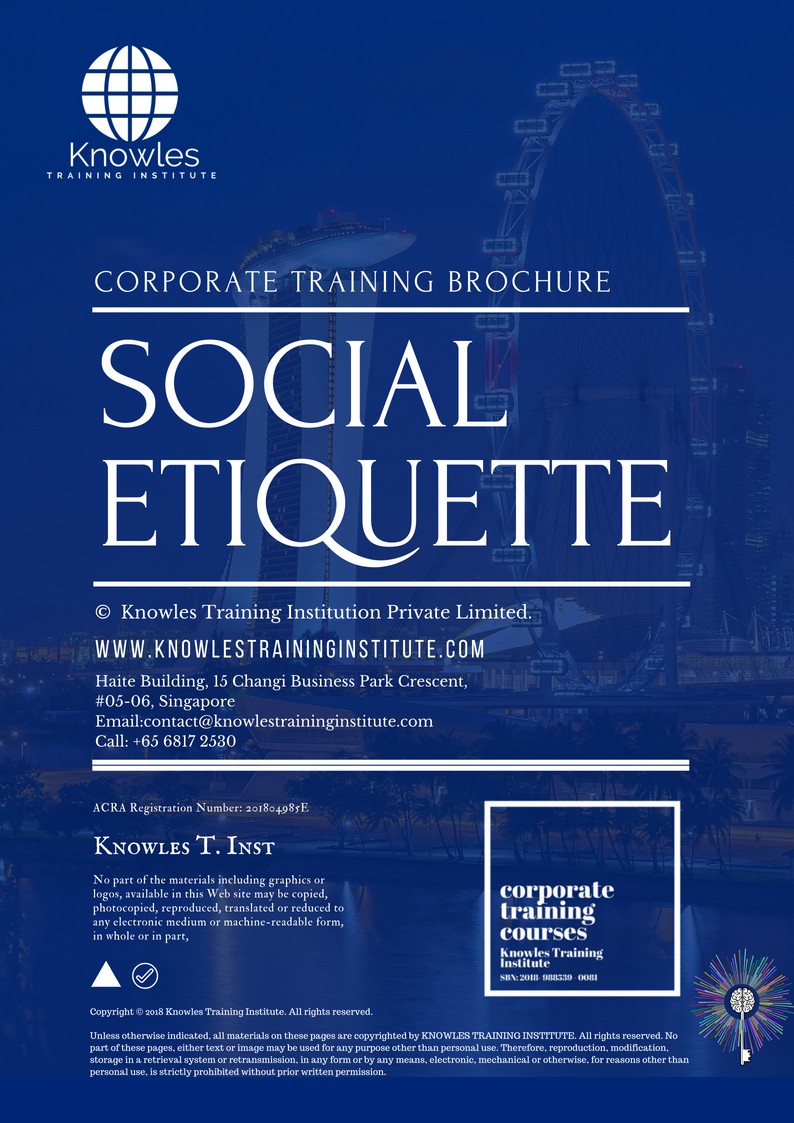
Request for this Social Etiquette course in Norway brochure. Fill up the short information below and we will send it to you right away!
Post Training Support: A vast majority of training does not have any effect beyond 120 days. To work, training has to have a strong pre- and post-training component. Post-training reinforcement helps individuals to recall the understanding and ask questions.
Blended Learning: Learning does not occur in the classroom. Virtually everybody prefers distinct ways of learning. Successful learning should have a multi-channel, multi-modal strategy.
- We Understand The Industry: We’ve got a profound comprehension of the business, business design, challenges, strategy and the that our participants are in and have designed the courseware to cater to their professional needs.
- Course Content: Knowles Training Institute’s material is relevant, of high quality and provide specific learning results. Participants will leave the training course feeling as they have gained a strong understanding and will also be in a position to execute what they have learned sensibly.
Course Development — The workshop modules follow a systematic and logical arrangement. This structure helps to ensure that the course material allows the facilitators to deliver the course in a logical arrangement. Consider the subjects as building bricks into learning, our facilitators slowly build towards a comprehensive picture of this entire topic.
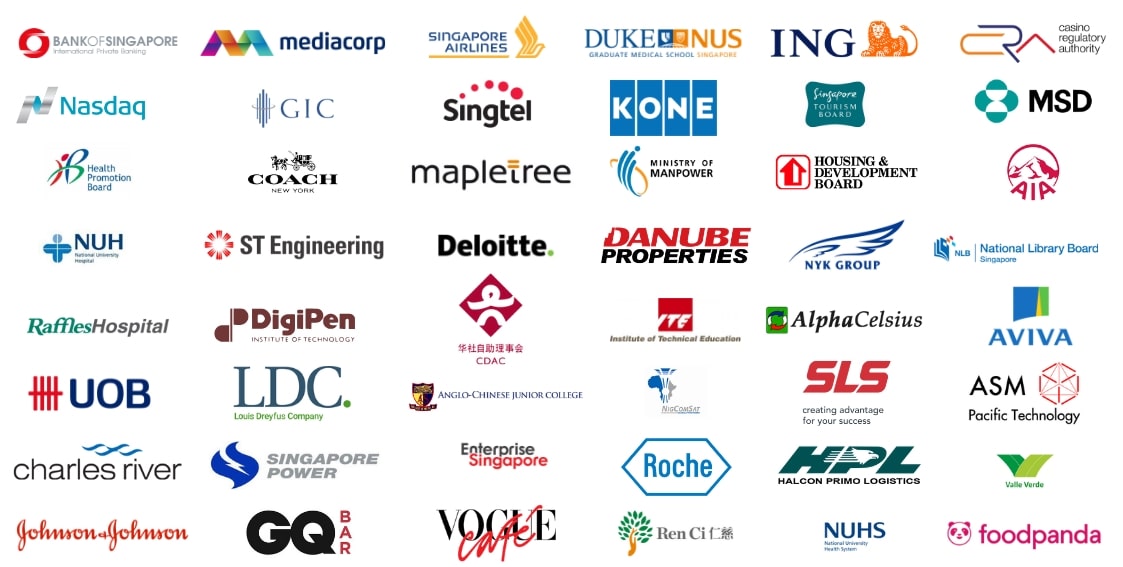

Course Enquiries

Fill up the form and we will get back to you in less than 1 working day.
Alternatively, give us a call to have one of our training consultants contact you. Our corporate training courses can be contextualized to meet your organization’s training needs. Leverage on our large pool of professional trainers and consultants for your organization’s training needs.
Email: contact@knowlesti.co.no
We Guarantee 100% Privacy. We Respect Your Privacy. Your Information Will Never Be Shared.

